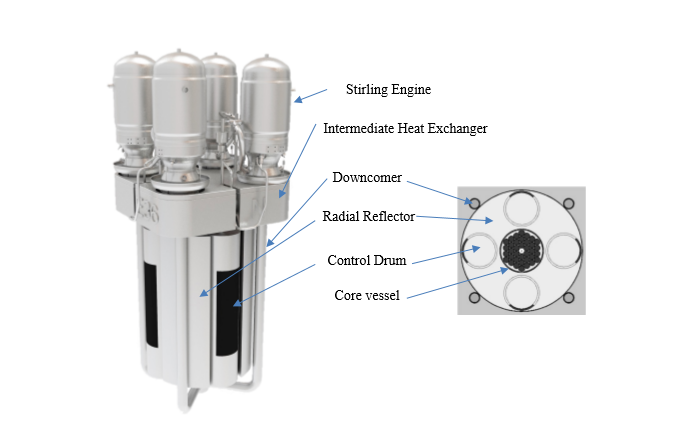DOE announces Finding of No Significant Impact for construction of MARVEL microreactor

IDAHO FALLS, Idaho (KIFI) - The U.S. Department of Energy (DOE) announced Monday a Finding of No Significant Impact (FONSI) following the Final Environmental Assessment for a proposal to construct the Microreactor Applications Research Validation & EvaLuation (MARVEL) project microreactor inside Idaho National Laboratory's (INL's) Transient Reactor Test Facility.
MARVEL, a sodium-potassium cooled, thermal microreactor with a power level of less than 100 kilowatts of electricity using High-Assay, Low-Enriched Uranium (HALEU), will be capable of testing power applications such as load-following electricity demand to complement intermittent renewable energy sources such as wind and solar - to help ensure reliable energy around the clock. It will also test the use of nuclear energy for water purification, hydrogen production, and heat for chemical processing.
International interest is now growing in microreactors: very small, factory fabricated, transportable reactors. Microreactors can be used in remote communities, industrial sites and defense bases, as well as for applications such as backup generation for power plants, humanitarian assistance, water purification, hydrogen production and disaster relief missions. Just like large traditional reactors, microreactors use fission to produce energy with no carbon emissions.
“As advanced reactors transition from theory to reality, MARVEL construction launches a new era of rapidly deployable, very small scale, nuclear energy technologies. This program promises to tangibly show rather than merely tell, in years rather than decades, the exceptional climate-impact potential of microreactors,” said Dr. Kathryn Huff, Principal Deputy Assistant Secretary for the Office of Nuclear Energy.
Ever since the first useable amount of electricity generated by nuclear energy was demonstrated in 1951 at the Experimental Breeder Reactor-I in Idaho, nuclear power has played an essential role in U.S. electricity generation. Nuclear energy today generates nearly 20% of the nation's electricity and about 55% of U.S. carbon-free electricity. That electricity is generated by large light-water reactors that each generate hundreds and sometimes thousands of megawatts of electricity, with each megawatt being enough to power about 1,000 homes.
The DOE Microreactor Program supports research and development (R&D) of microreactor technologies. Led by INL, the program conducts both fundamental and applied R&D to reduce the risks associated with new technology performance and manufacturing readiness of microreactors. The intent is to ensure that microreactor concepts can be commercially licensed and deployed, and to reinvigorate U.S. leadership in nuclear energy.
MARVEL will be an important step forward to provide industry partners with the ability to test new microreactor-related technologies and provide real-world, viewable examples of how commercial end-users could incorporate microreactors into their clean energy portfolios.
The Final Environmental Assessment and Finding of No Significant Impact were prepared in accordance with the National Environmental Policy Act. Throughout 2021, DOE conducted a public review and comment periods on the project's Draft Environmental Assessment and subsequent proposed FONSI. Comments received during those public review periods, along with the agency's corresponding responses, are posted for public review at: MARVEL FINAL EA and FONSI.
